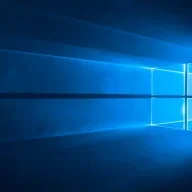Mozilla Firefox removes "Do Not Track" Feature
-
Similar Content
-
windows 11 Tracking a lost laptop
By Guest sandra_790,
- 0 replies
- 6 views
-
windows 10 Is a laptop serial number enough to track it??
By Guest Newton Gitahi,
- 0 replies
- 4 views
-
- 0 replies
- 3 views
-
windows 11 Slow Website Performance on Firefox with Windows 11
By Guest Muhammad Nadir Khan,
- 0 replies
- 4 views
-
windows 11 how do i completely remove all of windows's new "studio effects" features?
By Guest アビスいしの,
- 0 replies
- 2 views
-



Recommended Posts
Join the conversation
You can post now and register later. If you have an account, sign in now to post with your account.